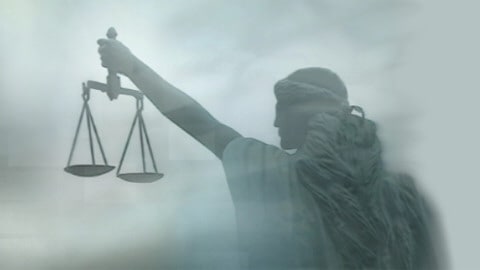
This is Part 3 of a series on responsible strategy. Here’s Part 1 on Responsible Analytics and Part 2 on Grand Strategy.
How can we help the communities we are a part of act in ways that are wiser, less ignorant, and less likely to be destructive? This question is close to the center of what I currently think ‘responsible strategy’ is trying to answer.
Ethics can help us answer the questions at the center of responsible strategy. Ethics is a process that individuals, organizations, and societies practice to clearly see the consequences of our powers, and to inform what a more caring, more informed, less destructive path might look like.
In this article I am going to summarize some of my personal learnings and thoughts on ethics. My writings reflect a provisional perspective; I have a lot more to learn and integrate into my thinking. I have found these concepts helpful to my own journey, and I hope that sharing with others sharpens not only my understanding but provides jumping off points for others to consider these concepts themselves.
Discovering and Evaluating Values and Stories
In my last article, I briefly explored how values, beliefs, and stories inform grand strategy. The purpose of and motivation for a strategic engagement is rooted in value laden worldviews, which ultimately affects how we go about our engagements. Sometimes our beliefs are consciously and intentionally learned, but more often than not they largely embody our unconscious learning.
To pursue responsible strategy, we need an ongoing process to check whether our unconscious and conscious learning is helpful or harmful. Ethics is a continuous process of inquiry that can help us evaluate what is helpful and harmful – and it is also useful for helping bring into focus what we don’t know, and what lies within our own ignorance.
The practice and application of ethics needs to be able to surface the most important elements of benefit and harm and expose them to scrutiny and discourse. And it requires moving in and out of different frames – including time (from the far past to the present) and scale (from the individual to all life on earth).
How do we know what is helpful and what is harmful?
A useful starting point for ethical discussions is, “What is being helpful? And how would we know whether we are being helpful or harmful?”
Often, our default is that anything that can be seen as “progress” is positive. However it is useful to note that whether something is helpful or harmful, or can be defined as progress, depends on how you are framing the situation.
Let’s say you work at a company with a product that you sell to customers. The default starting point for corporations is to frame progress in terms of economic growth, but there are other starting points too:
- Progress means having a job which allows me to provide for a family
- Progress means increasing our revenue quarter over quarter
- Progress means creating a better world for the next generation to live in
This shows the nested nature of any situation we find ourselves in; progress looks different at different levels, and there often are conflicts between these levels. What if selling this product to the world supports my family this year, but creates a worse world for my children in the coming decades? The ensuing ethical discourse often means engaging in balancing the consequences of action at different levels.
Exploring ethics fundamentally requires humility – a deep appreciation that progress in one realm so often can mean regression in another. Ethics encourages us to revisit and extend our definition of progress, in our pursuit to be less destructive, wiser, and more caring for ourselves and the world.
What is ethics?
The standard dictionary definition of ethics is “moral reasoning, or reasoning about appropriate conduct in different challenging or uncertain situations”. The operative words here are moral reasoning and conduct. Conduct is defined as “a mode or standard of personal behavior especially as based on moral principles”. Moral reasoning is defined as “the study of how people think about right and wrong”.
To rephrase – how do we think about rights and wrongs of given behaviors in challenging situations? Many questions flow from this inquiry. Despite our best intentions, how do we know we are doing more benefit than harm? How do we weigh short term priorities vs long term priorities? How do we weigh consequences for the individual vs the group / humanity? How do we develop our capacity to expand our circles of caring?
Consequences – harms and benefits
When we are morally reasoning, we are trying to determine rights and wrongs by applying our logic to a set of behaviors performed by some entity or agent. An agent or entity could be a single person, or it could be a society or all of humanity. When an agent/entity performs a behavior, it produces consequences in the world. With ethics we are attempting to ask ourselves, are the consequences of this behavior right or wrong, harmful or beneficial?
At a high level, benefits could mean:
- increasing opportunities
- reducing threats
- decreased waste / suffering / injustice
- increasing resourcefulness, resilience, and wisdom
- increased ability to adapt
Harms could imply:
- decreasing opportunities
- increased threats
- increased waste / suffering / injustice
- increasingly vulnerability to manipulation, exploitation, misdirection
- decreased ability to adapt
The picture starts getting even more interesting when we start asking what types of harm or benefit happen to whom, and on what time scale.
- Consequences for
- individuals
- groups / organizations
- societies / nations
- humanity
- life / Earth / biosphere
- Consequences to the agent responsible for the behavior
- Character
- What kind of character or values does a certain type of conduct imply?
- Can I / we as the agent live with ourselves knowing the consequences of the behavior?
- Are there certain behaviors that are never justified, no matter the consequences?
- Capacities
- Will this behavior degrade or enhance the agent’s ability to adapt going forward?
- Are there certain actions that are never justified because of the consequences to one’s character?
- Character
- Consequences in time
- the present (now, the next few months)
- the near future (within the next year, within our lifetimes)
- the human far future (within our lifetimes, “think 7 generations ahead”)
- the cosmic future (the next eon, the billions/trillions of people yet to exist)
The purpose of looking at different scopes and times is to start revealing the limits of our thinking, caring, and wisdom. It is far easier to make moral choices if we don’t look outside our immediate gaze. If my sense of caring is limited to consequences for myself within the next hour, justifying the behavior might be fairly straightforward. However, if we consider how an action might play out for other humans, other lifeforms, our society, or our biosphere, knowing the right and wrong behavior gets significantly more complex. It is easy for this constant tension and complexity to be paralyzing. Ethics doesn’t provide the answers, but rather a process by which we can reason about consequences to the best of our caring and ability to act.
Like a scientist would rigorously and systematically test a hypothesis to explain an observed phenomenon, ethics puts a moral challenge through different lenses to systematically look for ignored consequences. Ethics is a system for finding the hidden consequences of our moral actions.
Ethics is an ongoing process
Ethics is a humbling activity. Knowing that we are ignorant, finite beings with limited resources, time, and wisdom, we are still forced to choose a path (inaction can have grave consequences as well). Choosing a path while acknowledging our ignorance and lack of ability to care in larger spheres lies at the heart of ethics. In the face of this, we can resolve to revisit and re-evaluate our behaviors as we learn about the unfolding impact of our actions.
As life plays out the actual consequences, ethics plays an ongoing role of oversight. If we are open to revision, new information can shift the balance of our view of right and wrong conduct. Not only does the situation change over time, but the agent themself will change as well. We must continually revise our stories about progress and our actions in order to maintain and expand our capacity to care.
Ethics is similar to strategy in the sense that we are trying to pay attention to the right information from the right frames as new streams of information come in. We are in a state of always having to update our models of reality. More accurate models of consequences can give us greater freedom to act in a more caring manner. The scientific method revises theory in the light of contradicting evidence; the work of ethics is to revise our conduct in the light of revealed consequences.
Lastly, ethics is not just the ongoing work of individuals, but of cultures and civilizations. Not just within a lifetime, but within the span of ongoing on a societal level. It is ongoing because the responsibility of ethics never rests solely on an individual’s shoulders. Individuals are too limited in their ability to accurately assess consequences through time and space on their own. Ethics is an ongoing collaboration of the wisdom of agents present and past. In this way ethics is much like the ongoing process of science – constantly revising our understanding of reality by building upon the collective intelligence of those before them. Ethics, like science, is not just an individual pursuit, but an ongoing pursuit of humanity.
Conclusion
“We make our world significant by the courage of our questions, and the depth of our answers”
Carl Sagan
At the core of ethics is a desire to better our conduct – to be wiser and less destructive as we engage with challenging situations. There are always consequences to any action (or inaction). Ethics acknowledges the breadth of consequences and provides the chance to change the course of our conduct if needed.
Responsible strategy is a marriage of two ongoing processes – ethics and strategy. We need strategy to adapt and guide execution, but we also need ethics to evaluate the values and stories of progress that inform strategy. By clearly seeing the consequences of our behavior, we can make conscious decisions about what responsibility in responsible strategy means.
Ethics is hard work. It can be confusing, awkward, overwhelming, and a struggle to persevere in questioning our stories and revising our conduct. We can recognize and allow these challenging emotions to be with us – to hold room for multiple perspectives at once. To compassionately hold and clearly see different perspectives is essential in expanding our capacity to care. There is room for both the challenging and the rewarding when we tap into a deep conviction that better is possible.
I have briefly outlined my thoughts on the what of ethics; in the next set of articles I’ll be exploring the why, the who, and the how of ethics.
References
Justice in fog [Photograph]. https://img.src.ca/2009/07/15/480×270/090715justice_8.jpg
Ethics. (2021, Oct 14). In Wikipedia. https://en.wikipedia.org/wiki/Ethics
Low, K. (2016). The Human Venture Institute mapbook (16th edition). Action Studies Institute.
Suggested Resources
- Michael Sandel’s Harvard “Justice” Course
- Other presentations and resources by Nick Kalogirou
- Human Venture Meta Framework
- Map 81.2: Science & Ethics: Human Learning Ecology Definitions
- Map 131.2: Ethics – Semantic Reflections
Thanks to friends and the Human Venture Associate community for reading drafts of this article.
Nick Kalogirou is a Human Venture Leadership alumnus who likes to put technology, ethics, and communication together into understandable and useful stories. This article and other insights can be found on his website, nickkal.com
